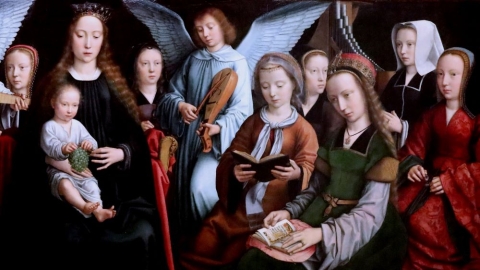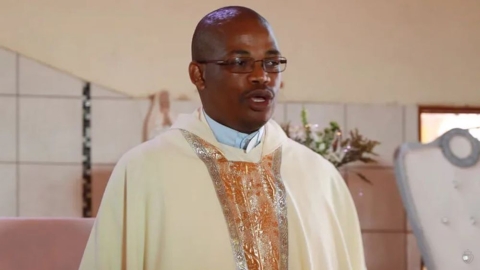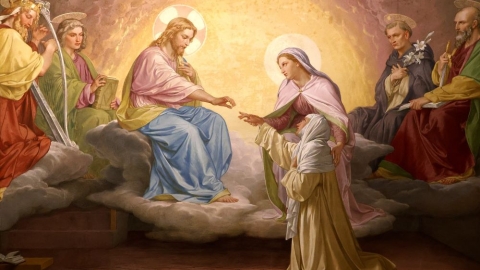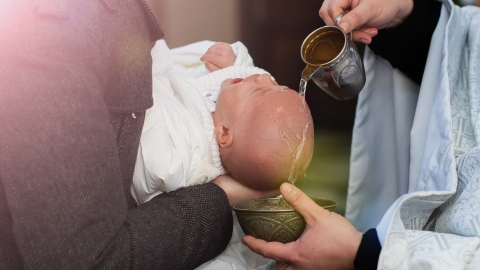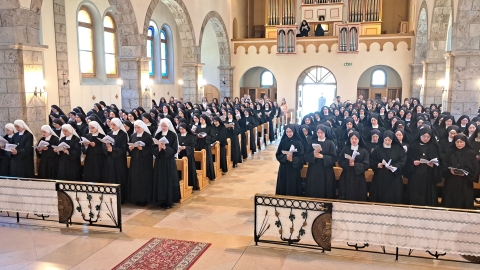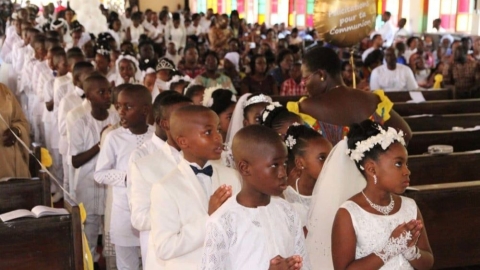Bishop Mutsaerts Harshly Judges Fiducia Supplicans
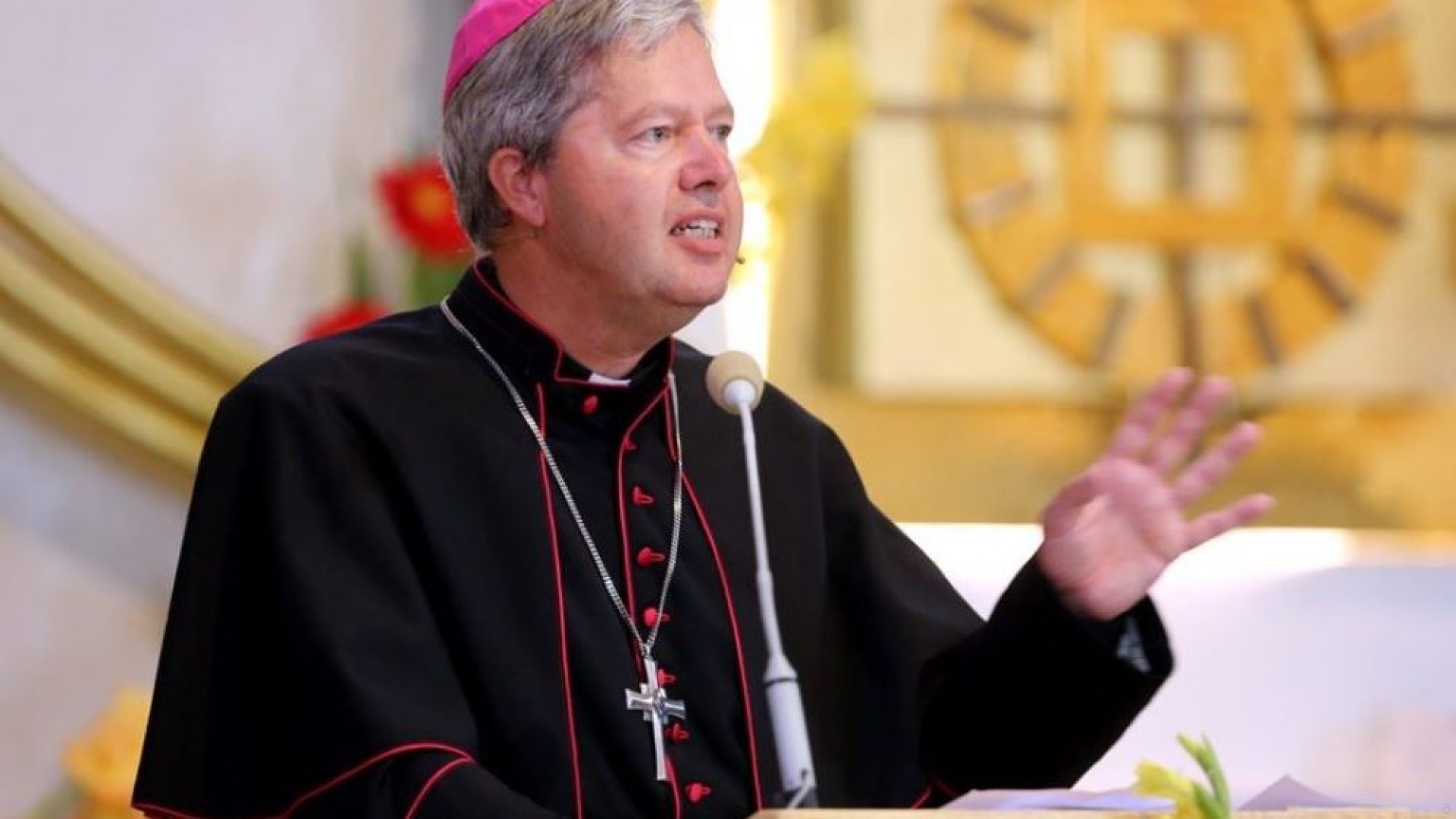
Bishop Robertus Mutsaerts
If Cardinal Victor Manuel Fernández thought that opposition to Fiducia supplicans would gradually fade away, he must be disappointed.
Bishop Mutsaerts Persists
On InfoVaticana on February 27, Robertus Mutsaerts, the courageous auxiliary bishop of 's-Hertogenbosch in the Netherlands, the one who spoke of the Synod on Synodality as a “synod of darkness,” declared: “The present times are extremely confused. One of the main tasks of the pope is to bring clarity where there is confusion.”
“But Pope Francis is selective in his answers to questions (some dubia never receive an answer, others receive them quickly) and, moreover, his answers are often subject to multiple interpretations, which only increases confusion and division. For example, Amoris laetitia: is it permitted for a person who is not in a state of grace to receive Holy Communion?
“The Church’s unequivocal response has always been a resounding ‘no.’ Amoris laetitia contains numerous statements whose imprecision or ambiguity allows interpretations that are contrary to faith or morality, or which suggest a declaration that is contrary to the faith and morality without stating it explicitly.”
Then the Dutch prelate comes to Fiducia supplicans: “Can a priest bless sinners? Obviously, yes. Can he bless sin? Obviously, no. Fiducia supplicans completely misses the key point. This document affirms that same-sex unions can be blessed. This is a doctrine contrary to the teachings of the Catholic Church.”
And he cautions, targeting Francis: “I do not rule out that Pope Francis will take new steps in the direction he has taken. But we also know that where there is no continuity, there is a rupture with tradition. We have never seen this in 2,000 years. The fact that there is a rupture with tradition may be evident from the resistance. In 2,000 years, we have never seen so many people – including an entire continent – oppose a Roman declaration.”
Bishop Mutsaerts denounces a blatant “double standard” in Rome: “‘Everyone, everyone, everyone,’ says Pope Francis: everyone is welcome. Everyone? It seems that an exception is made for traditionalists. The tone of Traditionis custodes is harsh, and how often are they described as ‘rigid,’ or more outlandish terms? Ask for the Traditional Mass and you will be cancelled.”
“A soft-spoken man like Bishop Strickland [Bishop of Tyler, Texas, dismissed by Francis on November 11, 2023] is one of many examples. The German and Belgian bishops who advocate again and again for changes in the doctrine and morals of the Church are treated with kindness. It marks the current pontificate.”
Broadening his remarks, the prelate denounces the de-christianization of Europe. Asked about the “de-Christianization and secularism that are advancing all over Europe, and what he thought was the solution for Europe to again become a Catholic continent,” the prelate responded: “In The Eternal Man, Chesterton describes the ‘Five Deaths of Faith,’ the five moments in history when Christianity was doomed to disappear.”
"Chesterton mentions: (1) the Roman Empire, (2) the time when Islamic armies conquered the Middle East and North Africa, (3) the Middle Ages when feudalism disappeared and the Renaissance emerged, (4) the era when the old regimes of Europe disappeared and the convulsive era of revolutions, and finally (5) the 19th century, the century of Marx, Darwin, Nietzsche, and Freud.”
“Each crisis was followed by a time of renewal, a time of rebirth. Each time faith seemed to go to the sharks, but each time it was the sharks that did not survive. Each time, the resurgence was totally unexpected. Even now, the Church seems to be coming to an end, but it could be differently. Orthodoxy has generally been the response that heralded the recovery.
“Of course, there are always voices calling for adaptation to the times. The Church should certainly do this, provided that it does not involve an adaptation of faith. In any case, the solution is not to lower the bar, to simplify the faith. Pleasing the secular world always ends in the evaporation of the faith. The Church has always survived where its identity remained through reform, purification, and revitalization.”
Related Article:
Towards the end, Bishop Mutsaerts legitimately denounces the alignment of men of the Church with politics and the spirit of the contemporary world, and rightly welcomes the independence of the Church in relation to political power, but he seems to ignore the importance of Christian institutions for the salvation of men: “The Church must no longer serve the interests of the government or the majority. She therefore no longer has to speak on behalf of anyone.”
“She can plead, in her own contrary way, for the powerless, the marginalized, the disabled, the unborn, all those who do not have a voice. The Church can open herself again to the words of Jesus: ‘You must not govern, but serve.’ The Church must not play the role of king, but rather that of critic.
“We forgive the unforgivable, we turn our cheek to the power-hungry, we stand our ground because we believe in it, whatever the cost. The Church will then be able to clearly say again what she is ultimately for: the salvation of souls. Nothing else. She will come closer to the Gospel. And that is a victory. There are then opportunities for growth.”
(Sources :InfoVaticana/DICI n°442 – FSSPX.Actualités)
Illustration : cqv.qc.ca
